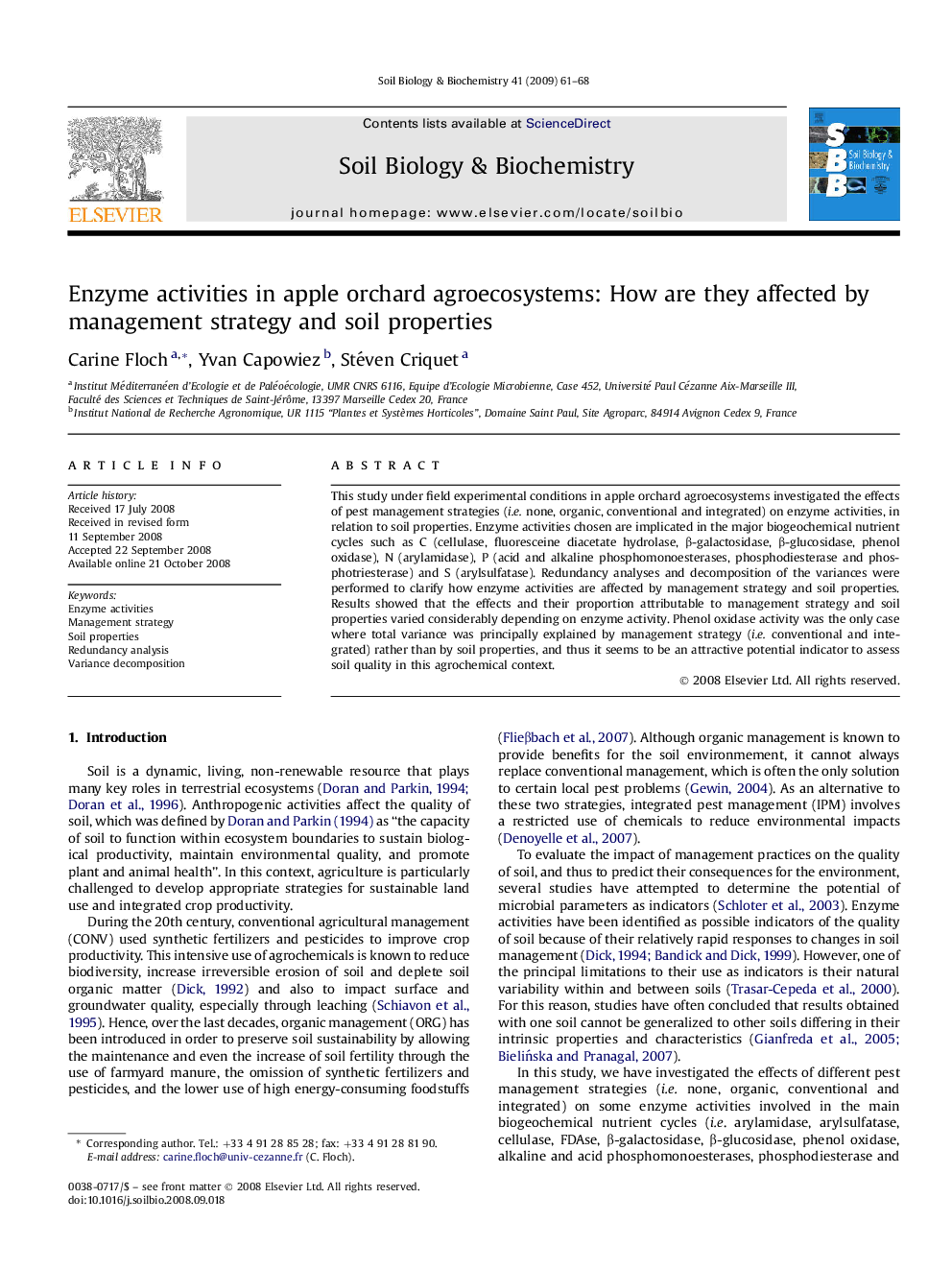| Article ID | Journal | Published Year | Pages | File Type |
|---|---|---|---|---|
| 2026809 | Soil Biology and Biochemistry | 2009 | 8 Pages |
This study under field experimental conditions in apple orchard agroecosystems investigated the effects of pest management strategies (i.e. none, organic, conventional and integrated) on enzyme activities, in relation to soil properties. Enzyme activities chosen are implicated in the major biogeochemical nutrient cycles such as C (cellulase, fluoresceine diacetate hydrolase, β-galactosidase, β-glucosidase, phenol oxidase), N (arylamidase), P (acid and alkaline phosphomonoesterases, phosphodiesterase and phosphotriesterase) and S (arylsulfatase). Redundancy analyses and decomposition of the variances were performed to clarify how enzyme activities are affected by management strategy and soil properties. Results showed that the effects and their proportion attributable to management strategy and soil properties varied considerably depending on enzyme activity. Phenol oxidase activity was the only case where total variance was principally explained by management strategy (i.e. conventional and integrated) rather than by soil properties, and thus it seems to be an attractive potential indicator to assess soil quality in this agrochemical context.
